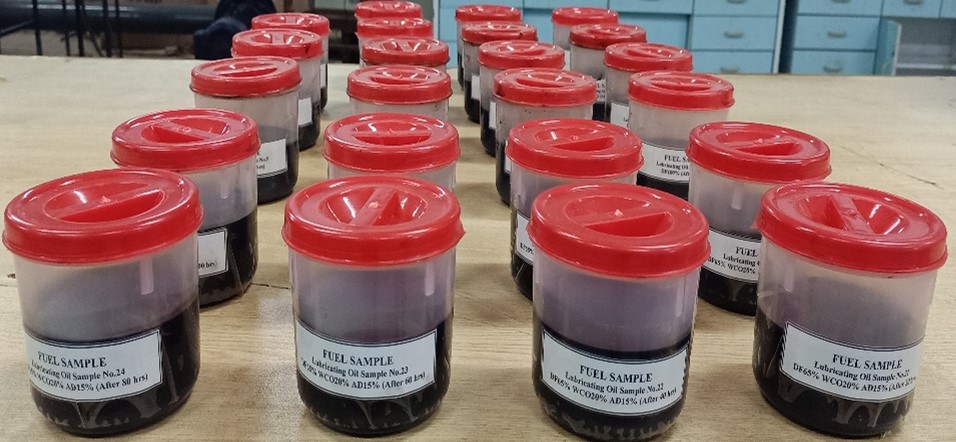COMPATIBILITY EFFECT OF TRIBOLOGICAL BEHAVIOR OF OIL USING HIGHER ALCOHOL BLENDS IN SINGLE CYLINDER DIESEL ENGINE
DOI:
https://doi.org/10.71146/kjmr208Keywords:
CI engine, Viscosity, Density , Debris analysisAbstract
Through a single-cylinder compression ignition (CI) engine, this study examines a 200-hour endurance test using DF100 (diesel fuel) as the base fuel and blended fuels, DF95WCO5 (5% waste cooking oil and 95% DF) and DF65WCO20Pe15 (20% waste cooking oil, 65% DF, and 15% n-pentanol). Additionally, DF100, DF95WCO5%, and DF65WCO20Pe15's impacts on exhaust valve surface deposits were examined. In comparison to DF100 and DF65WCO20Pe15, the SEM and EDS research revealed that DF95WCO5 had a greater concentration of carbon deposits surrounding the exhaust valve surface. In addition, ternary blend fuel exhibited less carbon buildup on the exhaust valve than the other two types. This demonstrated that the carbon deposition on the exhaust valve surface was considerably decreased by the addition of pentanol. In comparison to DF100 and DF95WCO5, the ternary blend fuel also showed lower concentrations of iron, copper, nickel, and wear debris. Ultimately, the viscosity and density readings decreased when the engine was run on both blend fuels.
Downloads

Downloads
Published
Issue
Section
License
Copyright (c) 2025 Faheem Ahmed Solangi, Ali Murtaza Ansari, Sajjad Hussain Solangi, Muhammad Moosa Jakhrani, Muhammad Kashif Abbasi (Author)

This work is licensed under a Creative Commons Attribution 4.0 International License.






